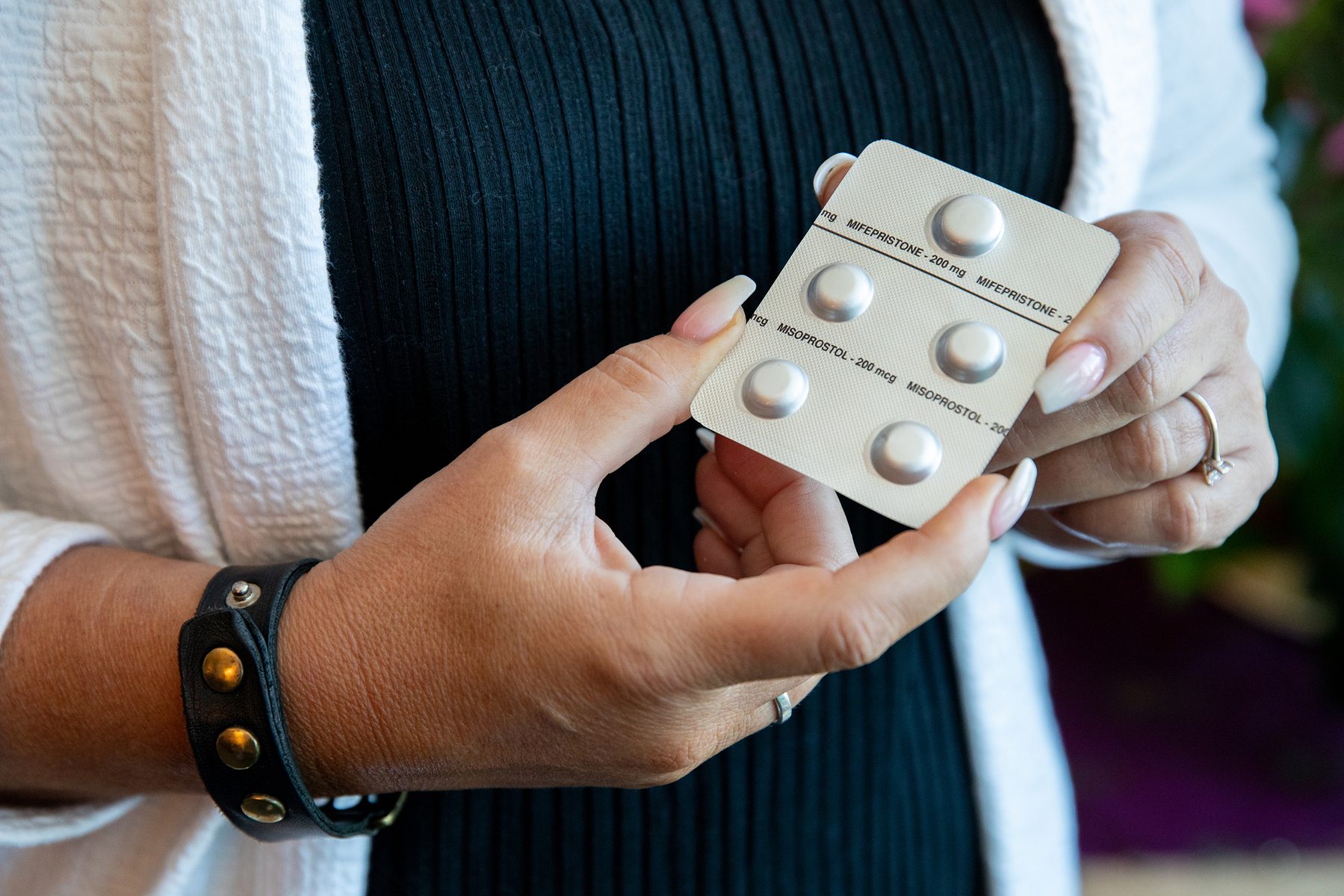As state lawmakers weigh new restrictions on abortion, some Republicans are revisiting a longstanding taboo of not prosecuting pregnant people for seeking abortions in places where the procedure is banned, though the topic remains divisive among anti-abortion advocates.
State restrictions have so far fallen just shy of imposing criminal penalties on people who seek abortions, instead targeting physicians, health care providers and anyone else who might help someone get an abortion.
But that may be changing. A bill introduced Thursday in Oklahoma’s Senate would amend the state’s abortion restrictions, eliminating language that clarifies pregnant people are protected from prosecution. Under that bill, which has not yet been assigned to a legislative committee and has no co-sponsors yet, pregnant people could face felony charges if they induce an abortion. The bill’s sponsor, state Sen. Warren Hamilton, did not respond to a request for comment.
The legislation follows remarks made earlier this week by Alabama Attorney General Steve Marshall, who suggested that even without new legislation, his state has ways to prosecute people who take abortion medications on their own. Marshall indicated that he would prosecute people who self-administer medication abortions under the state’s chemical endangerment law, which was designed to protect children from controlled substances such as methamphetamine. A spokesperson from Marshall’s office did not respond to a request for comment.
Medication abortion involves taking a dose of mifepristone, followed by a second drug, misoprostol, which is taken typically 24 to 48 hours later. Administering the medications on one’s own — a process known as “self-managed abortion” — is medically safe and endorsed by groups such as the World Health Organization, especially in places where abortion access is limited. Earlier this month, a regulatory change at the Food and Drug Administration allowed abortion pills to be sold at retail pharmacies.
Since Roe v. Wade was overturned last summer, allowing states to ban abortion, increasing numbers of people have sought to obtain medication abortion pills from internet-based medical organizations such as the Europe-based Aid Access, or have accessed them in other states.
It is not clear if legislation like this bill could be used to prosecute people who take the first set of abortion medications in another state where the practice remains legal and then take the misoprostol regimen from home.
The Oklahoma bill’s sponsor submitted a letter to the state attorney general this past fall seeking clarification as to whether the state’s existing laws already punished people who self-managed their abortions, citing an existing state law that explicitly prohibits self-managed abortion.
-
Read Next:
No other states have yet introduced similar legislation to Oklahoma’s, and Marshall’s office backtracked his remarks, saying he only intended to target providers. But these moves highlight a growing tension among anti-abortion officials and policymakers, many of whom have expressed frustration that people living in states with abortion bans have still been able to use medication.
“Safeguards will be a huge priority in those states, especially as more and more abortions are done using that method,” Katie Glenn, state policy director for the anti-abortion Susan B. Anthony List told The 19th last month.
When it comes to medication abortion — particularly pills obtained in states where abortion is illegal — “we also think there is more that states can do and tools the legislature can provide to attorneys general or local district attorneys who do identify a problem,” she said.
Still, Glenn told The 19th in a more recent interview this week, her organization does not support policies that would punish people for taking abortion pills.
“We don’t support any law that would criminalize the woman, because the focus is on the provider, on the physician,” she said.
Glenn said her organization, which works with states to craft abortion restrictions, had not considered the use of chemical endangerment laws to punish people for taking medication abortion pills. Similar chemical endangerment laws exist in Arkansas, Arizona and Oklahoma, noted Elizabeth Nash, who tracks state policy for the Guttmacher Institute, which researches reproductive health policy. States have already prosecuted pregnant people for substance use in pregnancy, with some charging patients under murder or child endangerment statutes. But applying such laws to the use of medication abortion would represent a new frontier.
It’s also not yet clear if other states will follow Oklahoma’s lead. Missouri’s statehouse is considering legislation that would treat a fetus as a person, a bill that, if passed, could be used to prosecute people who get abortions.
Last summer, Louisiana lawmakers considered a bill that would have treated abortion as murder, effectively criminalizing people who induce their own abortions. But that legislation, which would have been the first abortion ban to explicitly punish pregnant people, did not pass.
Still, other states appear likely at the very least to consider legislation that could be leveraged to prosecute people seeking medication abortions. A bill has been introduced in Mississippi that would similarly punish “chemical endangerment.” If the bill passes, state officials are likely to attempt to apply it to the use of medication abortion as well.
“I’ve been worried about the use of drug laws,” Nash said, adding that she expects to see Republican state officials — and particularly attorneys general — to become more aggressive in their efforts to prosecute people who induce their own abortions using medication.








